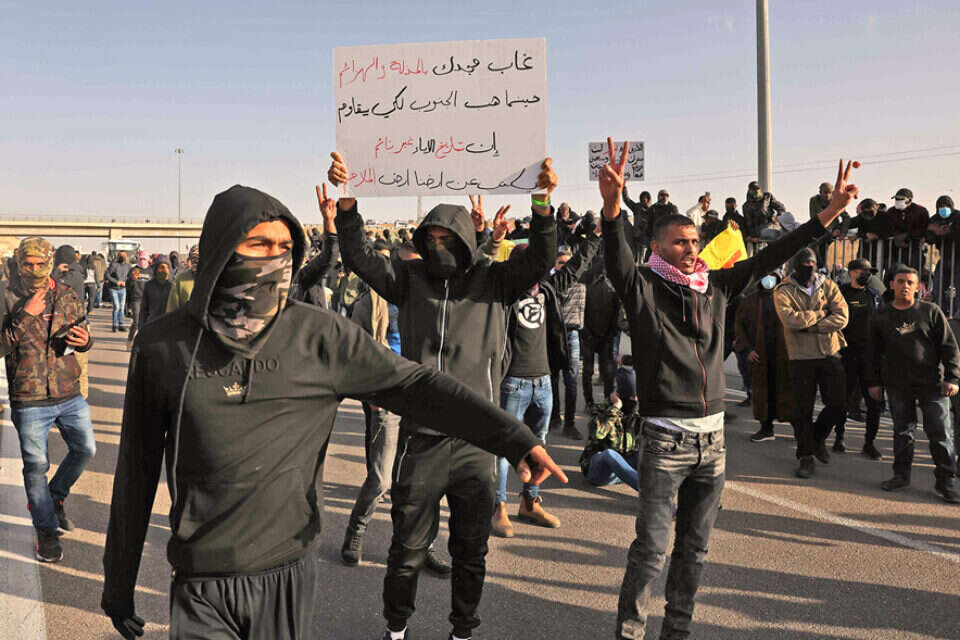About 20 years ago, I attended one of the routine working meetings of the late Prime Minister Ariel Sharon, with the then head of the GSS, Avi Dichter, who was an administrator at the time.
The meeting took place at the "Villa" in the Kirya camp in Tel Aviv, and as is customary in such meetings, the military secretary also attended.
At the time it was Major General Yoav Galant.
Dichter and I presented to the late Prime Minister the "issue of Ahmadim" - the residency permits that Israel gives to Palestinians and foreign citizens, as part of the requests for family reunification. The scope of the phenomenon shocked Ariel Sharon. Ruling and discount to formulate a solution to this, together with the Ministries of the Interior and Justice.
The Citizenship and Entry into Israel Law, which was amended as a temporary directive in 2003 and has been extended since then every year, was intended to prevent or reduce some of the risks inherent in Israel's national security security process.
The main sill on which the law rested was security.
It was easy to point to the relatively high involvement in terrorist activity of recipients of residency in this way or of their children ("second generation Ahmash"), in relation to the entire Arab public in Israel.
The phenomenon was prominent in the inferno attacks during the second intifada, but continued in the years that followed.
The PLOs are involved in terrorist attacks and other terrorist activities at a very high rate relative to their share of the Arab population as a whole.
The scene of the shooting attack in Be'er Sheva in 2015, Photo: AFP
The same is true of Bedouin society in the Negev.
Of the prominent terrorist acts that have taken place in recent years in the south, one can mention the involvement of Ahmadis (or members of the second generation) in the murder of the late soldier Ron Kukiya in November 2017;
In the shooting attack at the central bus station in Be'er Sheva where the late soldier Omri Levy was killed in October 2015, and in the plan for a mass attack on a celebration hall in Be'er Sheva in 2016, which was exposed and thwarted ahead of time.
The High Court judges who rejected the petitions against the law ruled that in the prevailing reality in Israel, his violation of constitutional rights is proportionate. "Human rights are not a prescription for national suicide," wrote Judge Asher Grunis in his ruling. Although a family is constitutional, it does not necessarily have to be realized within the state.
Over the years, however, the strainer holes through which residency applications were examined have widened: the applicability of restrictions has been reduced for men under 35 and women under 25. The welcome decline in institutionalized terrorism and the change in its characteristics were also reflected in the absolute number of cases involving Ahmadis. Terrorism has not faded, but the statistical prevalence has diminished and so has the weight of this argument. However, the broad effects of the IMF process have not weakened.
It is not just about its demographic implications in light of Israel's definition of a Jewish state, and not only in the path it has created for the actual realization of the "right of return," but also its profound impact on protest patterns and confrontation by Arab public or Jewish authorities.
It is no secret that many of the population of the Ahmadis continue to maintain contact with their area of origin in the Judea and Samaria territories or in the Gaza Strip.
Life in Israel has not erased its connection to these areas.
They are attentive to what is going on there, emotionally involved, influenced and unfortunately also influencing their current environment.
The Palestinians are not alone in this matter. Palestinians staying in Israel illegally are employed, and often live, in Arab localities or mixed cities, encouraging the atmosphere of conflict and pushing for extremism.
The extremism in the conflicts that have taken place throughout the year cannot be attributed solely to this.
The extent of the impact of these two populations on the height of the flames in the conflicts that have taken place in the past year, is a subject for deeper examination.
It will be interesting to examine the correlation between the intensity of the violence and the rate of Ahmadis and the Shabashim in the areas where riots took place.
Even if this is not the main reason for this, it is correct to take into account these consequences of the AHMAS process (the phenomenon of illegal Palestinian residents deserves attention in itself, but in a different framework).
A citizenship law that would restrict the issuance of residency permits, as the original purpose of the temporary order, is an opportunity to stop or at least slow down the process.
Such a law may serve not only the national interests of Israel, but also the aspirations of many of its Arab citizens, troubled by extremism among them, suffering from its destructive consequences for image, economy, society and the delicate fabric of relations built between Jewish society and state authorities.
Were we wrong?
Fixed!
If you found an error in the article, we'll be happy for you to share it with us

